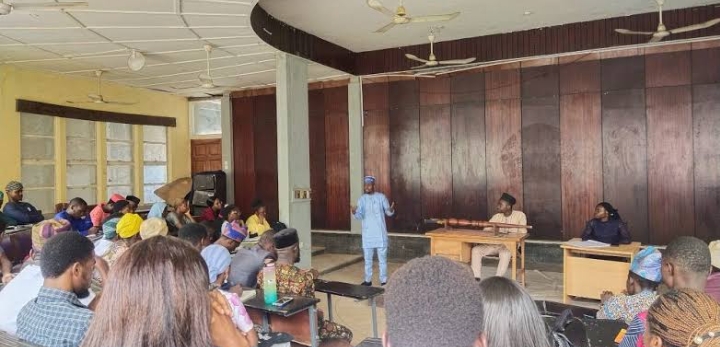By Oderinde Motunrayo
“With great Power comes great Responsibility..”, how then do we hold power to account, if or when it lacks responsibility?
In recent times, murmurs have been going on about how there’s the arising need for power to be held to account, as it concerns the Archaeology and Anthropology Student Association’s administration. Questions have been raised, concerns have been communicated, the student body is yearning for a voice that will ensure that their affairs are duly attended to with all integrity. Hence, the Press has decided to dig into this arising need.
On Tuesday, June 18th, 2024, the Press conducted virtual interviews with some honorable members of the department who are part of different student representative councils across the faculty and department. They are Miss. Solafunmi Alawusa, the Chairperson of AASA Stakeholders, Hon. Ogunsemore Busayo Blessing, the Deputy Speaker of AFAS FLC, and Hon. Aremo David, the Deputy Speaker of FASSA SRC (FSRC).
The topic of discussion was the creation of the SRC and its benefits to the student body. Miss. Solafunmi expressed that the creation of SRC “is a good initiative that would foster the interest of the students.” She explained that the SRC is a “voice and representation of the students.” She elaborated on how the SRC would intervene in student matters, oversee issues such as the “rumor of mismanagement of funds in the department and accountability, package issues, and create a stronger sense of community among students.”
Hon. Busayo attested to this, explaining that the SRC would help ensure checks and balances in the affairs of the executive. She further explained that they will “help regulate laws within an administration” through the guidance of the constitution that is set up. She noted that with the SRC on board, issues concerning packages or fieldwork palaver would become minimal. Hon. Aremo also expressed the importance of creating the SRC arm, emphasizing its usefulness as a voice for the student body.
Questions were raised about the selection process of members for the committee and the feasibility of creating this arm in the department. Hon. Busayo responded that the selection process would be stated in the constructed constitution, while Hon. Aremo explained that the selection process would involve picking representatives across all levels.
While the SRC sounds interesting and effective, the issue of feasibility still lurks in the shadows. Hon. Busayo expressed frustration about the feasibility of the SRC, stating that “it has been pushed for over the years but with no solid result of its creation.” However, Hon. Aremo confidently replied that “yes, it’s feasible” and all that’s needed is for them to tender their plans and constitution to the Head of Department. Before the creation of the SRC, “there must first be the enactment of a constitution” according to Hon. Busayo. The question of how the SRC will be funded was also raised. Hon. Solafunmi explained that the SRC “is liable to a percentage from the dues paid by students.” This method cannot be completely faulted since it’s towards fostering the cause of the student body.
The interview concluded with a question about the tenets of the SRC. Like every arm of government, the SRC has its own code of conduct, which members must follow to maintain discipline among themselves. Hon. Aremo listed some of the tenets, including: “Bowing before the mace when the speaker is on seat before leaving (referred to as ingress and egress); No non-parliamentary words are allowed” He explained that these rules are called standing orders, ensuring discipline among SRC members. Hon. Busayo added that “Accountability, dedication, and transparency” are also crucial codes of the council.
These interviews have hitherto raised awareness about the importance of student involvement in the department’s decision-making process. Creating a Student Representative Council in the department will provide a platform for students to voice their concerns without fear or doubt. This council will represent students’ interests, ensure checks and balances, fair budget allocation, and timely distribution of student packages.
However, the question is; can the SRC stand up to the highest authority? If feasibility is assured, and thus the council is established, can the students trust that indeed power will hitherto be held to account?
